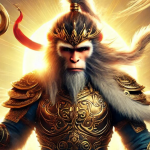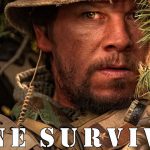𝘾𝙖𝙧𝙜𝙤 (𝟮𝟬𝟭𝟳)

𝙎𝙪𝙜𝙜𝙚𝙨𝙩𝙚𝙙 𝙫𝙞𝙙𝙚𝙤𝙨 𝙛𝙤𝙧 𝙮𝙤𝙪:
𝙎𝙪𝙜𝙜𝙚𝙨𝙩𝙚𝙙 𝙫𝙞𝙙𝙚𝙤𝙨 𝙛𝙤𝙧 𝙮𝙤𝙪:
𝙎𝙪𝙜𝙜𝙚𝙨𝙩𝙚𝙙 𝙫𝙞𝙙𝙚𝙤𝙨 𝙛𝙤𝙧 𝙮𝙤𝙪:
Introduction
Cargo (2017) is an Australian post-apocalyptic thriller directed by Ben Howling and Yolanda Ramke, based on their 2013 short film of the same name. Starring Martin Freeman, the film offers a fresh take on the zombie genre by focusing more on the emotional and human elements of survival rather than solely on the horrors of the undead. Set in the Australian outback, Cargo follows the journey of a father, Andy (Freeman), who is trying to protect his infant daughter from a rapidly spreading zombie virus, all while grappling with his own impending infection. The film blends the intensity of a survival thriller with deep emotional resonance, making it more than just a typical zombie movie.

Plot Overview: A Father’s Desperate Journey
Cargo is set in a world ravaged by a viral outbreak that turns people into zombies within 48 hours of being infected. The film opens with Andy, his wife Kay (Susie Porter), and their baby daughter Rosie living on a houseboat, trying to stay away from the dangers of the mainland. Their fragile existence is shattered when Kay is bitten by one of the infected. As Kay succumbs to the virus, Andy is forced to venture onto land with Rosie to find a safe haven before he himself turns into a zombie.
As the clock ticks, Andy’s condition worsens, and he becomes increasingly desperate to secure Rosie’s future. Along the way, he encounters various survivors, including a young Indigenous girl named Thoomi (Simone Landers), who is dealing with her own loss and trauma. The interactions between Andy and Thoomi form the emotional core of the film, as they both seek redemption in their shared struggle for survival. Thoomi’s deep connection to her Aboriginal culture also adds a unique dimension to the story, highlighting the importance of community, tradition, and the land.

Themes: Parenthood, Sacrifice, and Cultural Survival
One of the central themes of Cargo is parenthood, particularly the lengths to which a parent will go to protect their child. Andy’s journey is not just about surviving the zombie apocalypse but about ensuring the safety and future of his daughter. His love for Rosie drives him to take risks, form alliances, and make heartbreaking sacrifices. The film portrays Andy’s vulnerability as a father who knows that his time is running out and that he must find a way to care for his child before he succumbs to the virus.
Sacrifice is a recurring theme in the film, not only through Andy’s actions but also in the choices made by other characters. Kay’s sacrifice at the beginning of the film, where she fights off the infected at the cost of her life, sets the tone for the film’s exploration of what it means to give everything for the sake of loved ones. Andy’s ultimate decision to save his daughter, despite knowing that he is doomed, speaks to the depth of parental love and the selflessness that comes with it.
In addition to its focus on parenthood, Cargo also explores the theme of cultural survival, particularly through the character of Thoomi. As an Aboriginal girl living in the outback, Thoomi’s understanding of the land and her people’s traditions help guide her through the crisis. Her connection to her culture is portrayed as a source of strength and resilience, in contrast to the chaos and destruction brought by the outbreak. The film subtly contrasts Western methods of survival with Indigenous knowledge of the land, suggesting that survival is not only about physical endurance but also about maintaining a connection to one’s identity and heritage.

Character Study: Andy’s Transformation
Martin Freeman delivers a powerful performance as Andy, a man whose primary motivation is to protect his daughter at all costs. Freeman’s portrayal of Andy is nuanced, capturing both his physical deterioration as he nears death and his emotional unraveling as he faces the grim reality of his situation. Andy is not the typical action hero found in many post-apocalyptic films; instead, he is an everyman, grappling with fear, guilt, and the immense responsibility of fatherhood.
As Andy’s infection progresses, his transformation is not just physical but emotional. The early parts of the film depict him as a man who still harbors hope that he might find a solution, but as time runs out, he becomes increasingly desperate and willing to take more drastic measures. Freeman’s ability to convey Andy’s growing sense of dread and urgency adds a layer of emotional depth to the film, making his final sacrifice all the more poignant.
The relationship between Andy and Thoomi also plays a crucial role in his character’s development. At first, Andy is focused solely on Rosie’s survival, but as he grows to understand Thoomi’s pain and her connection to her culture, he begins to see the bigger picture. Thoomi’s presence forces Andy to confront not just his own mortality but the idea that survival is about more than just staying alive—it is about leaving behind something meaningful.

Setting: The Australian Outback as a Character
The Australian outback serves as both a backdrop and a character in Cargo, its vast and unforgiving landscape reflecting the isolation and desperation of the characters. The harsh environment adds to the tension of the film, with its barren stretches of land offering little in the way of shelter or resources. The beauty of the outback is juxtaposed against the bleakness of the situation, creating a haunting atmosphere that heightens the stakes of the narrative.
The landscape also plays into the film’s exploration of Indigenous culture. Thoomi’s connection to the land is a vital part of her survival, and her understanding of its rhythms and dangers gives her an edge in the post-apocalyptic world. The outback, in this sense, is not just a setting but a symbol of endurance, tradition, and the power of nature to outlast human civilization.











